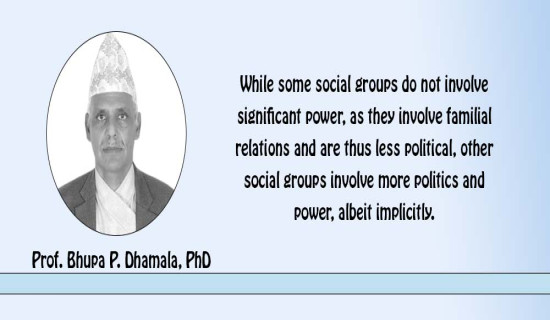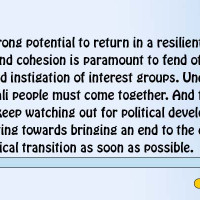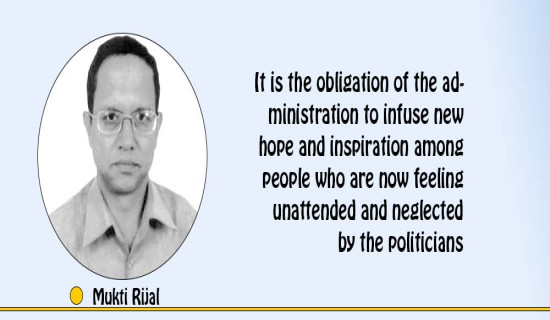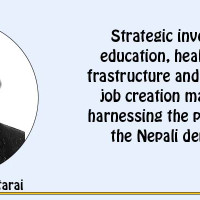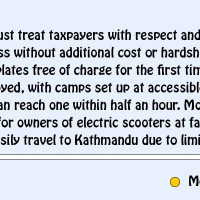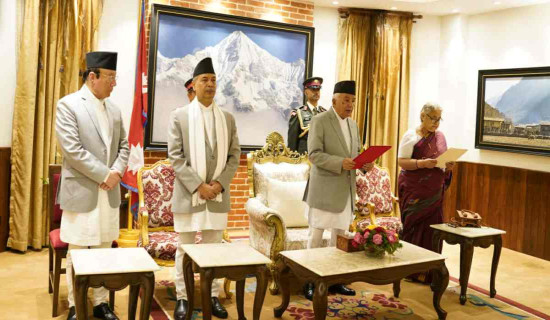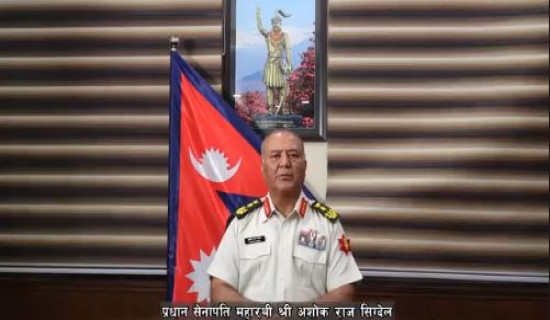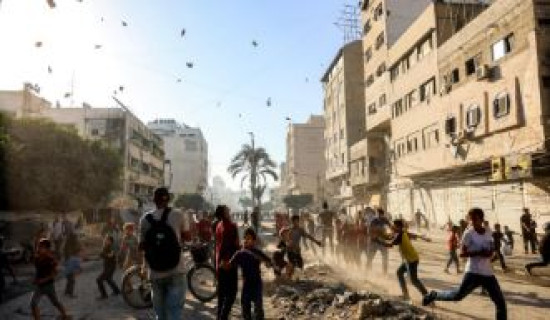- Saturday, 13 September 2025
Cash Bonus For More Babies
We are marking the World Population Day on July 11. The event gives two entirely different messages to Nepal. There is a high pressure of population in the southern plains and urban areas while the hilly and mountain regions witness a significantly low density. In general, we consider that a country is an area of land, sea and sky it covers as well as the people who inhabit in it. Instead of this simple assumption, Oxford Advanced Learner’s Dictionary defines a nation state in a different way —‘the state is an organised political community controlled by one government.’
This definition prioritises human existence and as well as their favoured political system for a nation state. To be a state, instead of a vast area of land, unlimited sea beaches and open skies and flora and fauna, it requires people to be committed to sacrificing for the sake of nation and the political system to regulate them. In other words, an adequate number of people is necessary in certain area to operate the political system, social system and cultural rituals.
In our context, it has become a burning issue today, especially in the hilly and mountain regions of the country. Many youths leave those regions for foreign countries in search of a job while their spouses are shifting to cities for providing good education to their children. As everybody knows, the hilly and mountain regions are short of youth and active manpower. Keeping this situation in mind, some far-sighted local level leaders have brought new schemes in their budget. If a couple gives birth to more than two kids, it will get a cash prize of Rs. 5,000.
It is timely, laudable and far-sighted decision on two grounds. First, the population will increase in those areas so that the barren land will be cultivated. This will also help increase people’s participation in the political system and the areas will turn vibrant as the southern plains before the eradication of malaria.
The second point is directly linked to the number of people in a country to defend the national sovereignty instead of the well trench of some hundred soldiers. To explain this serious case, let me cite the battle of Thermopylae fought in 480 BC. The war was fought between king of Sparta Leonidas I of Greece and king of Persia Xerxes I. To take revenge of the Battle of Marathon, Xerxes had built a huge army of one hundred thousand and attacked Leoniadas forces to capture the mighty Sparta and whole of Greek states.
Though the far-sighted and brave king of Sparta had formed an alliance by which he had 400 Thebans, 700 Thespians and 900 helots including 300 his most committed and well-trained army, but most of Thebans, Thespians and helots surrendered during the war. So, the brave king of Sparta, Leoniadas, had to fight with the full force of his 300 exemplary army-men. The battle is a stark example that the country needs sons and daughters of the motherland instead of machineries to defend it.
Nepal is facing a negative growth in population which is harmful to the three-tier federal democratic political system and defending the sovereignty of the country. Though the scheme to encourage the child birth is small and symbolic, it is visionary decision which will bring smile to the faces of old generation people who are looking to a geriatric centre.



